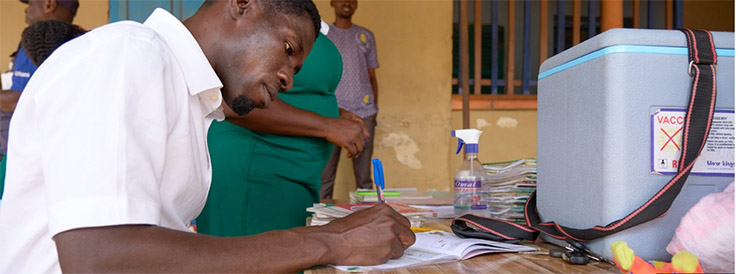6


The World Health Organization (WHO) has reported that it has added the R21/Matrix-M malaria vaccine to its list of pre-qualified vaccines. Only last October, the World Health Organization recommended its use to prevent malaria in children, following advice from the WHO Strategic Advisory Group of Experts on Immunization and the Malaria Policy Advisory Group.
Prequalification means increased access to vaccines as an essential tool for preventing malaria in children, and is a prerequisite for vaccine procurement by UNICEF and financial support for implementation by the Global Alliance for Vaccines and Immunization (GAVI).
The first vaccine was pre-qualified in July 2022
The R21 vaccine is the second malaria vaccine pre-approved by WHO, following the RTS vaccine, S/AS01, which received pre-qualification status in July 2022. Both vaccines have been shown to be safe and effective in clinical trials, for preventing malaria in children.
When implemented on a large scale, along with other recommended malaria control interventions, they are expected to have a significant public health impact. Malaria, a mosquito-borne disease, poses a particularly heavy burden on children in the African region, where nearly half a million children die from the disease every year. Globally, in 2022, there were an estimated 249 million malaria cases and 608,000 malaria deaths in 85 countries.
protection
The pre-qualification of the world's second malaria vaccine, developed by the University of Oxford and manufactured by the Serum Institute of India, is expected to expand access to malaria prevention through vaccination. Demand for malaria vaccines is high, but supply is so far limited.
The availability of two pre-qualified WHO-recommended antimalarial vaccines is expected to increase supply to meet the high demand from African countries, resulting in the production of sufficient doses of the vaccine to benefit all children living in malaria-endemic areas. .
Dr. Rogerio Gaspar, Director of the Department of Regulatory and Prequalification at the World Health Organization, said: “Obtaining vaccine prequalification from the World Health Organization ensures that the vaccines used in global immunization programs are safe and effective for use in the targeted health systems. WHO evaluates several products for pre-qualification each year, and the essence of this work is to ensure increased access to safe, effective, high-quality health products.
Dr Kate O'Brien, Director of the WHO Department of Immunization, Vaccines and Biologicals, said: “Today represents a major step forward in global health as we have received pre-qualification for R21/Matrix-M, the second malaria vaccine recommended for children with malaria. Malaria”. Endemic malaria diseases. Regions.
Invade
This achievement confirms our tireless commitment to eliminating malaria, which remains a formidable enemy that causes suffering and death among children. This is another step towards ensuring a healthier and more resilient future for those who have long lived in fear of what malaria could do to their children. We are united with our partners in the pursuit of a malaria-free future, where all life is protected from the threat of this disease.
As part of the pre-qualification process, WHO applies international standards to comprehensively evaluate and determine whether vaccines are safe, effective and manufactured in accordance with international standards.
WHO also ensures the continued safety and effectiveness of pre-qualified vaccines through, for example, regular re-evaluation, site inspections and targeted testing. Prequalification supports the specific needs of national immunization programs regarding vaccine characteristics, such as efficacy, thermal stability, presentation, labeling, and shipping conditions.

“Wannabe internet buff. Future teen idol. Hardcore zombie guru. Gamer. Avid creator. Entrepreneur. Bacon ninja.”
